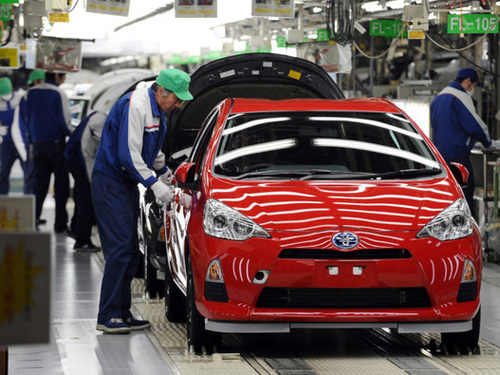Oct 25 2013
Top misconceptions of the Lean movement, according to Jim Womack | Financial Post
See on Scoop.it – lean manufacturing

Misconception 2: ‘It is about factories.’
Misconception 3: ‘Lean is a within-the-walls activity to fix your company.’
Misconception 4: ‘Lean is an improvement process production people can do — management doesn’t have to do anything.'”
I agree with points 1 and 4, but I have issues with 2 and 3. “The Machine that Changed the World” was a book about factories, and it was based on a worldwide benchmarking study of the car industry sponsored by the Sloan foundation.
 Lean is proven in Manufacturing, by the success of Toyota and a few other manufacturing companies. That Lean is applicable outside of Manufacturing is possible, and plausible, but not proven. Even in Manufacturing, it is far too early to proclaim “mission accomplished,” as most attempted implementations in factories have yet to deliver the expected results.
Lean is proven in Manufacturing, by the success of Toyota and a few other manufacturing companies. That Lean is applicable outside of Manufacturing is possible, and plausible, but not proven. Even in Manufacturing, it is far too early to proclaim “mission accomplished,” as most attempted implementations in factories have yet to deliver the expected results.
As for expanding beyond the walls of your company into the supply chain, yes, you should do it but not before you have your own house in order. Toyota itself didn’t do it until the late 1970s.
Going to suppliers before you have transformed your internal operations is not a recipe for success. Womack does not claim it is, but branding a focus on internal operations a “misconception” is an encouragement for managers to shift their focus to suppliers too early.
See on business.financialpost.com
October 25, 2013 @ 11:44 am
Michel,
I have an issue with Misconception 4 only because I’ve never heard anyone say that, “management doesn’t have to do anything.” Maybe I’ve led a sheltered lean life, but I have yet to run into a leader who doesn’t think he or she has a role to play. While it is common for executives to underestimate the level of involvement they need to have, I have not noticed a desire to ignore it.
Regarding your “factories” comment, I have been working within the oil and gas industry for the last several years and am starting to see some very positive results from lean. We haven’t reached the point of “mission accomplished” yet and probably never will, but lean is starting to take hold and drive some much needed change. To carry the thought a little further, approaching exploration and production as a factory provides a very clear lens with which to drive lean, so while I disagree that it’s only for manufacturing, it may be correct to say that it is “all about factories.”
As usual, thanks for posting thought-provoking material.